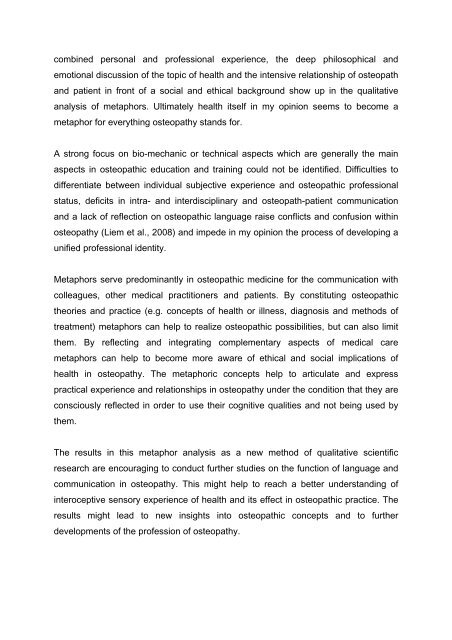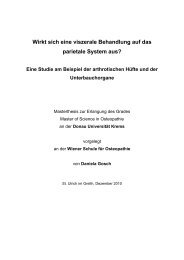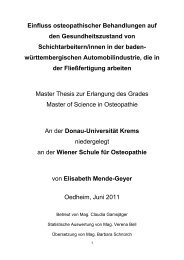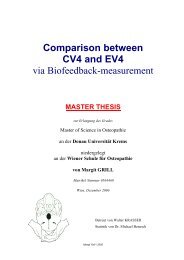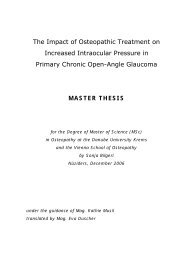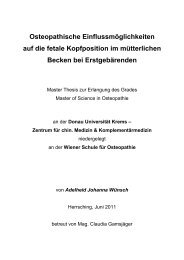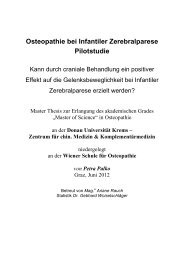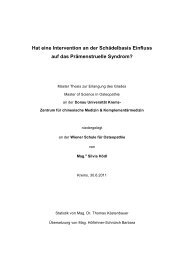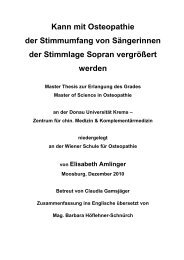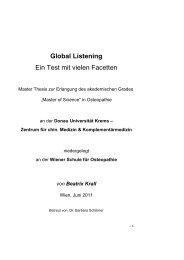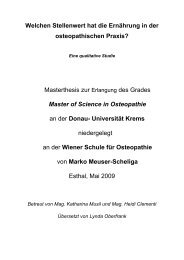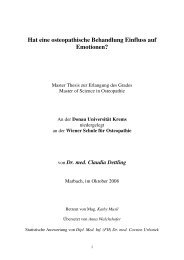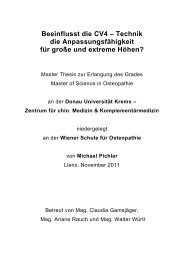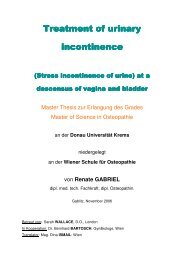Risch Andreas.pdf - Osteopathic Research
Risch Andreas.pdf - Osteopathic Research
Risch Andreas.pdf - Osteopathic Research
Sie wollen auch ein ePaper? Erhöhen Sie die Reichweite Ihrer Titel.
YUMPU macht aus Druck-PDFs automatisch weboptimierte ePaper, die Google liebt.
combined personal and professional experience, the deep philosophical and<br />
emotional discussion of the topic of health and the intensive relationship of osteopath<br />
and patient in front of a social and ethical background show up in the qualitative<br />
analysis of metaphors. Ultimately health itself in my opinion seems to become a<br />
metaphor for everything osteopathy stands for.<br />
A strong focus on bio-mechanic or technical aspects which are generally the main<br />
aspects in osteopathic education and training could not be identified. Difficulties to<br />
differentiate between individual subjective experience and osteopathic professional<br />
status, deficits in intra- and interdisciplinary and osteopath-patient communication<br />
and a lack of reflection on osteopathic language raise conflicts and confusion within<br />
osteopathy (Liem et al., 2008) and impede in my opinion the process of developing a<br />
unified professional identity.<br />
Metaphors serve predominantly in osteopathic medicine for the communication with<br />
colleagues, other medical practitioners and patients. By constituting osteopathic<br />
theories and practice (e.g. concepts of health or illness, diagnosis and methods of<br />
treatment) metaphors can help to realize osteopathic possibilities, but can also limit<br />
them. By reflecting and integrating complementary aspects of medical care<br />
metaphors can help to become more aware of ethical and social implications of<br />
health in osteopathy. The metaphoric concepts help to articulate and express<br />
practical experience and relationships in osteopathy under the condition that they are<br />
consciously reflected in order to use their cognitive qualities and not being used by<br />
them.<br />
The results in this metaphor analysis as a new method of qualitative scientific<br />
research are encouraging to conduct further studies on the function of language and<br />
communication in osteopathy. This might help to reach a better understanding of<br />
interoceptive sensory experience of health and its effect in osteopathic practice. The<br />
results might lead to new insights into osteopathic concepts and to further<br />
developments of the profession of osteopathy.


